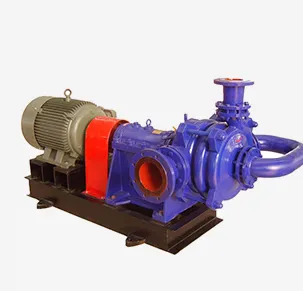Sindhi
- Afrikaans
- Albanian
- Amharic
- Arabic
- Armenian
- Azerbaijani
- Basque
- Belarusian
- Bengali
- Bosnian
- Bulgarian
- Catalan
- Cebuano
- Corsican
- Croatian
- Czech
- Danish
- Dutch
- English
- Esperanto
- Estonian
- Finnish
- French
- Frisian
- Galician
- Georgian
- German
- Greek
- Gujarati
- Haitian Creole
- hausa
- hawaiian
- Hebrew
- Hindi
- Miao
- Hungarian
- Icelandic
- igbo
- Indonesian
- irish
- Italian
- Japanese
- Javanese
- Kannada
- kazakh
- Khmer
- Rwandese
- Korean
- Kurdish
- Kyrgyz
- Lao
- Latin
- Latvian
- Lithuanian
- Luxembourgish
- Macedonian
- Malgashi
- Malay
- Malayalam
- Maltese
- Maori
- Marathi
- Mongolian
- Myanmar
- Nepali
- Norwegian
- Norwegian
- Occitan
- Pashto
- Persian
- Polish
- Portuguese
- Punjabi
- Romanian
- Russian
- Samoan
- Scottish Gaelic
- Serbian
- Sesotho
- Shona
- Sindhi
- Sinhala
- Slovak
- Slovenian
- Somali
- Spanish
- Sundanese
- Swahili
- Swedish
- Tagalog
- Tajik
- Tamil
- Tatar
- Telugu
- Thai
- Turkish
- Turkmen
- Ukrainian
- Urdu
- Uighur
- Uzbek
- Vietnamese
- Welsh
- Bantu
- Yiddish
- Yoruba
- Zulu
Telephone: +86 13120555503
Email: frank@cypump.com
Sep . 06, 2024 23:55 Back to list
Reliable Pumps for Septic Systems - Efficient Wastewater Management Solutions
Pumps for Septic Systems An Overview
Septic systems are crucial for managing wastewater in areas without access to centralized sewage treatment. At the heart of a septic system lies the septic pump, an essential component that influences the efficiency and effectiveness of waste management. Understanding the different types of pumps available for septic systems can help homeowners make informed decisions.
Types of Septic Pumps
There are primarily two types of pumps used in septic systems effluent pumps and grinder pumps.
Effluent Pumps are designed to efficiently move wastewater from the septic tank to the drain field. They allow the effluent to flow under pressure, ensuring it reaches the leach field even when the ground is sloped or when gravity alone cannot facilitate the flow. These pumps are typically submerged in the tank and activate when the water level rises. They are capable of handling solid waste but are best suited for handling relatively small particles.
Grinder Pumps, on the other hand, are necessary when the home is located below the level of the septic tank or drain field. These pumps not only move wastewater but also grind solids into smaller particles, preventing clogs and ensuring smooth operation. They are crucial for homes with basements or those that add an additional level. The grinder pump’s blades break down solids, allowing for a more efficient transport of waste to the septic system.
Key Features to Consider
pumps for septic systems

When selecting a septic pump, several key features should be considered
1. Flow Rate and Head Pressure Flow rate refers to the volume of water the pump can move per minute, while head pressure is the distance the pump can effectively push water. It’s crucial to choose a pump that can handle the specific requirements of your system.
2. Durability and Material Since septic pumps work in challenging conditions, they should be made from corrosion-resistant materials. Stainless steel or thermoplastic options are ideal for longevity.
3. Pump Size Choosing the right size is critical to ensure optimal performance. A pump that is too small may struggle with the workload, while an oversized pump can lead to unnecessary energy costs.
4. Maintenance and Repair Opt for pumps that are easy to service and maintain. Some models come with features that allow for easier access and replacement of parts, which can save time and money in the long run.
Conclusion
In conclusion, selecting the right pump for a septic system is vital for its functioning and longevity. Effluent and grinder pumps serve different purposes, and understanding their functions can help homeowners choose effectively. By considering key features like flow rate, durability, and maintenance, homeowners can ensure a reliable and efficient septic system, ultimately contributing to better waste management and environmental health.
-
ISG Series Vertical Pipeline Pump - Chi Yuan Pumps Co., LTD.|High Efficiency, Energy Saving, Low Noise
NewsJul.30,2025
-
ISG Series Vertical Pipeline Pump- Chi Yuan Pumps|High Efficiency&Low Noise
NewsJul.30,2025
-
ISG Series Vertical Pipeline Pump-Chi Yuan Pumps Co., LTD.|High Efficiency&Energy Conservation
NewsJul.30,2025
-
ISG Series Vertical Pipeline Pump - Chi Yuan Pumps Co., LTD.|Advanced Hydraulic Design&Energy-Efficient Solutions
NewsJul.30,2025
-
ISG Series Vertical Pipeline Pump - Chi Yuan Pumps Co., LTD.
NewsJul.30,2025
-
ISG Series Vertical Pipeline Pump - Chi Yuan Pumps Co., LTD.|energy-efficient fluid handling&industrial durability
NewsJul.30,2025










